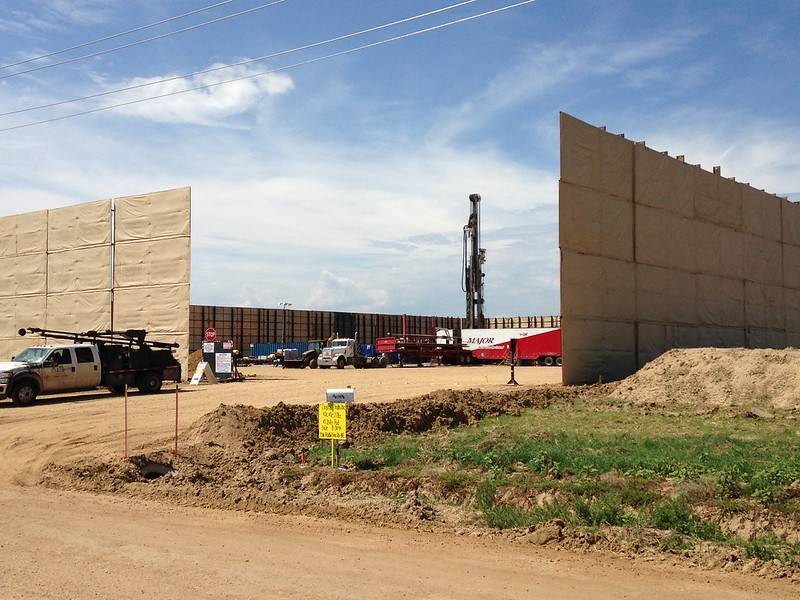
Research performed by the EPA (Environmental Protection Agency) found chemicals like benzene in the groundwater near a fracking site in Wyoming. Whether or not it was due to natural sources or drilling has been debated. Read more!
Other studies have found that methane concentrations in water have been 17 times greater in drinking water wells near fracking sites than those located elsewhere.
Despite these studies, the topic of whether or not fracking is hazardous remains controversial.
Defenders of fracking say that only 0.1% of fracking fluid is made up of chemicals. However, as thousands, even millions, of gallons of fluid can be used for one frack job, the number of gallons of chemicals is still proportionately great.
Others point to the fact that not all fracking sites use the same chemicals, and many of the chemicals that have been declared harmful by environmentalists may not be hazardous when diluted.
Hydrochloric acid, for example, has been cited as a highly dangerous chemical often used in fracking. Hydrochloric acid is harmful in a concentrated form, but it’s been said that it is not toxic when diluted, and is in fact commonly used in swimming pools. Hydrochloric acid is also said to neutralize when it comes in contact with carbonates and other minerals.
While it’s possible hydrochloric acid may be neutralized by the soil before reaching water supplies, it’s use in pool water doesn’t equal being safe in drinking water: drinking large quantities of pool water would no doubt have a hazardous effect.
Some scientists believe that the chemicals become trapped underground within the shale rock. Others, as discussed in this article, predict that the chemicals will emerge over time, taking years to surface.
The problem with these studies is—many areas have experienced issues already.
Another article, “Collosal Fracking Mess,” gives light to communities that have been seriously affected by fracking sites in their area. Incidences of residents, animals, and the land being negatively affected are all cited.
If you are concerned about fracking water pollution in your neighborhood, having your water analyzed by professionals could prevent you and your family from the hazards of chemicals or other contaminates. Click to learn how you can get a Water Quality Analysis.



